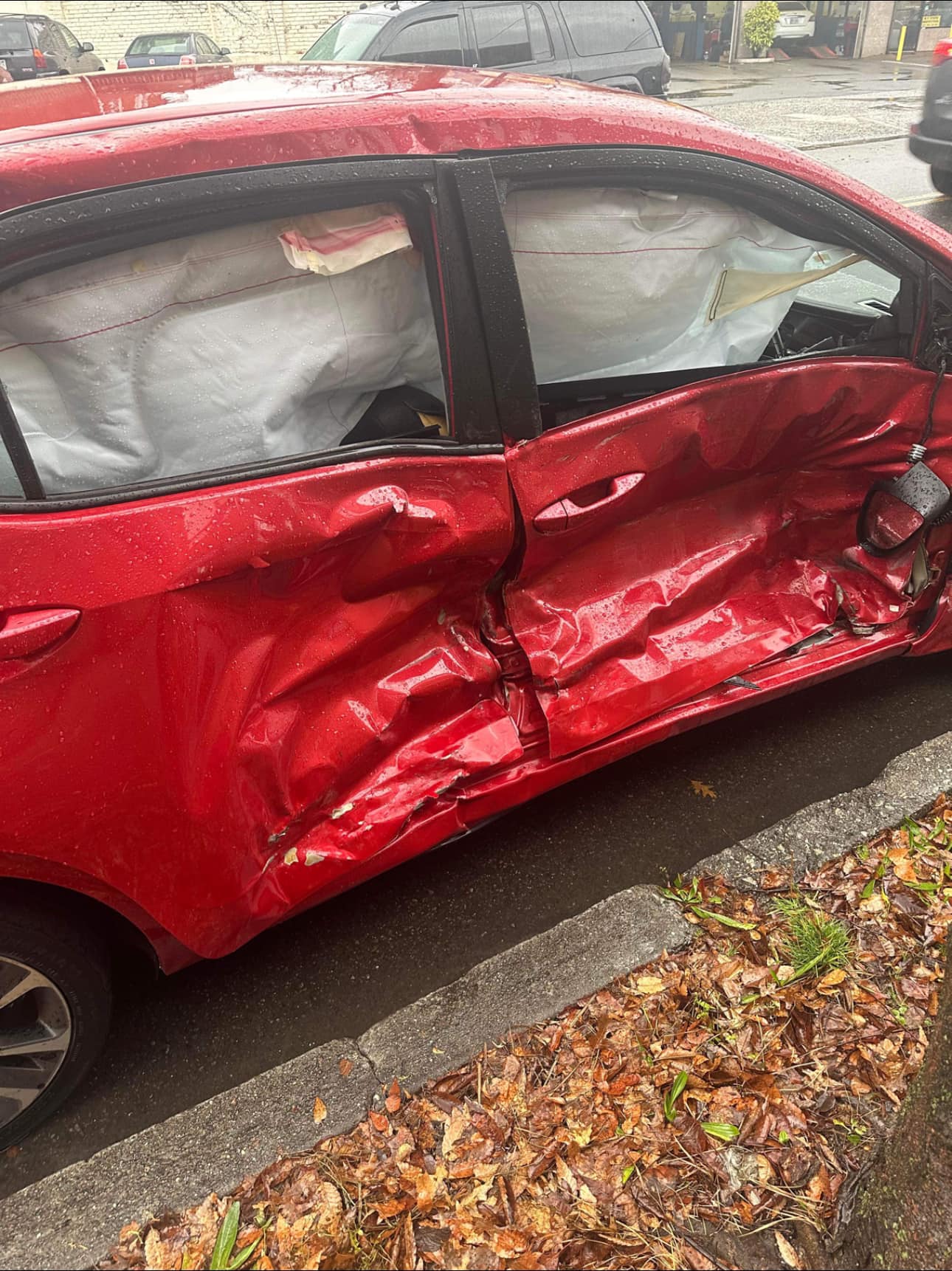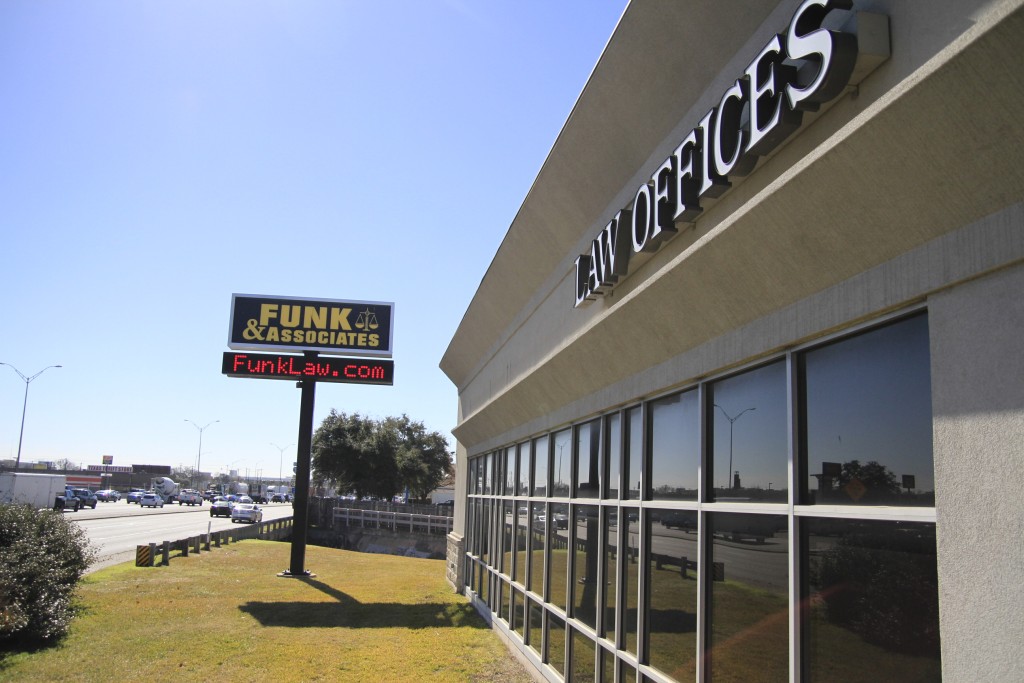Written by Funk & Associates Personal Injury Lawyers
At Fault Party?
It’s expensive to get injured in a car accident!
Injuries are not only limited to your physical harm—they can also include pain and suffering, mental anguish, lost wages, and property loss.
No one can put a price tag on your life and your health. But we can put a dollar amount on these kinds of personal injury damages, and you can get the money you deserve if liability is assigned to a negligent driver or company.
The at-fault party is the person or organization who was the proximate cause of an accident that caused injuries or damages. (The proximate cause is the primary cause of the injury. It is the action without which you would not have your injuries.)
In Texas, determining the “at-fault party” means figuring out who should be held accountable and from whom to seek financial compensation. A legal determination of fault means the at-fault party is legally responsible for the accident and the resulting injuries and losses.
Let’s take a closer look at how insurance companies and the Texas legal system look at fault when it comes to auto accidents and personal injury cases …
How Can An Accident Victim Be Compensated By the At-Fault Party?
In Texas, an auto accident victim can recover damages for their injury in one of three ways:
- File a claim against the at-fault party’s insurance company.
- File a claim with their own insurance, such as Personal Injury Protection (PIP) or Uninsured Motorist Coverage. This may be the only option with an uninsured and financially limited defendant.
- File a lawsuit directly against the at-fault party.
Regarding all three points above:
In Texas, you have a limited window of opportunity to file a personal injury lawsuit against an insurance company. The clock is ticking.
Missing the deadline means you cannot sue again, unless you can demonstrate that fraudulent conduct by the defendant prevented you from filing earlier. You must file your lawsuit against the at fault party within 2 years from the date of the accident or you will be forever barred from filing the lawsuit.
Even then, you still need to show that you suffered damages as a result of the accident. You don’t have to deal with this alone; get a free case evaluation to determine whether or not your situation is grounds for legal action.
Can Both Parties Be At Fault in a Car Accident?
Accidents can happen due to the carelessness or irresponsibility of more than one driver, leading insurance companies to assign proportional blame.
It’s possible for both drivers to share fault. In a multi-car pileup, it’s possible for multiple drivers to share fault.
Texas follows comparative fault statutes for auto accidents. Each driver is assigned a level of responsibility, with fault determined on a percentage basis. For instance, if you are found 40% accountable for a rear-end collision, the other driver is considered 60% responsible, and you would receive 60% of the awarded compensation. You would receive no recovery if a jury found you to be more than 50% responsible for an accident.
Seeking advice from a local personal injury attorney will help you understand your specific situation (and we offer free consultations!)
Insurance companies may dispute claims if both parties are deemed partially at fault. In multi-vehicle accidents, the complexity increases, potentially leading to court involvement where a judge and jury determine responsibility. Here again, an experienced attorney can help determine liability and pursue fair compensation.
Scroll down to read the “More On Comparative Negligence and Modified Comparative Fault” section.
What Does Liability Insurance Cover If I’m Not At Fault?
In Texas, drivers are required to have liability insurance to ensure they can financially compensate others in the event of an accident. The key aspects covered by liability insurance include:
- Bodily Injury Liability Coverage: This covers the medical expenses, rehabilitation, and sometimes lost wages of individuals injured in an accident where the policyholder is at fault.
- Property Damage Liability Coverage: This covers the cost of repairing or replacing damaged property, such as vehicles or structures, caused by the at-fault driver.
If one driver causes a car accident that results in damage or injury to another person, the at-fault driver’s liability insurance is designed to cover the losses suffered by the victims.
To put it another way: Liability insurance covers damages and injuries caused by the policyholder or an entrusted and NON excluded driver whom the policyholder loaned the car to and when they are at fault.
Liability insurance does NOT cover the at-fault driver’s own injuries or vehicle damage. Instead, it is specifically designed to protect others who may be harmed due to the policyholder’s negligence.
If you are not at fault in an accident, the at-fault driver’s liability insurance should cover your medical expenses, property damage, and other losses.
That’s how things work in a perfect world.
However, in some cases, if the at-fault driver is uninsured or underinsured, your own insurance policy may come into play, particularly if you have uninsured/underinsured motorist coverage.
We recommend that you review your insurance policy and understand the coverage options to ensure you have adequate protection and encourage all people to get UIM/UM coverage. .
Will My Insurance Go Up If I’m Not At Fault?
When you are not determined to be the at-fault party in an auto accident, you might think it’s only fair that your insurance rates do not increase.
However, in Texas, there is no law preventing insurance companies from raising your premium even if you were not at fault. This implies that if your insurance provider believes you are at risk of being involved in future accidents, they have the authority to increase your premium at their discretion.
Unfortunately, it is possible for your insurance to increase after an accident, even if you were not at fault. All the more reason you need legal assistance to get what you’re owed for medical expenses, damage to your vehicle and more which will help offset unjustified increased premiums.
How Should I Deal With An At Fault Driver’s Insurance Company?
The short answer: YOU SHOULDN’T.
The slightly longer answer…
Remember: The insurance company represents the at-fault party. They do not have your best interests at heart.
The adjuster at the at-fault party’s insurance company will come across as kind and sympathetic. He or she will say they want to reach a fair agreement.
But for them, lower settlements mean higher profits. They want to get things done as quickly and cheaply as possible.
So no, you should not speak to the insurance company of someone who injured you or damaged your property.
If you DO find yourself on the phone with an adjuster, you should:
- Decline to give a recorded statement. This is your right under Texas law!
- Be polite, not argumentative.
- Only give basic information such as your name, phone number and address.
- Do not talk about what happened in the accident or discuss your injuries or treatments.
- Do not accept or reject their offer to settle. If the damages were minor and there were no injuries, employing a personal injury lawyer may not be a viable solution. In such cases, you’re still best served by proceeding slowly and carefully.
If you have received significant injuries or damages, you’re better off politely declining to speak to the at-fault party’s insurance company. Then contact Funk and Associates immediately and let us help you.
More On Comparative Negligence and Modified Comparative Fault
Here’s a scenario to consider: A defendant may have caused an auto accident, but what if the plaintiff wasn’t wearing a seatbelt? What if the doctors say those injuries would have been prevented if he was wearing the seatbelt?
As we wrote about in our article on negligence, comparative negligence is a legal principle applied in personal injury claims to decide who is at fault in an accident.
If more than one person is at fault for the injuries, each party is responsible based upon the percentage of responsibility.
Texas follows a “modified comparative fault” rule, meaning you can recover damages only if you are less than 51% at fault. You can’t pursue compensation from the other party if you are more than 50 percent responsible for your injuries.
If you bear 51% or more of the responsibility for your injuries, you cannot recover any compensation.
Conclusion
Remember: Timing and the ability to establish harm are critical factors in pursuing a personal injury claim in Texas.
If you have been injured through the negligence of another person or company, our experienced personal injury attorneys are here to help. Please contact us today at 512-472-3865 or fill out our online form for a free consultation. Our team is dedicated to guiding you through your claim and helping you obtain the compensation you deserve. We look forward to assisting you.







